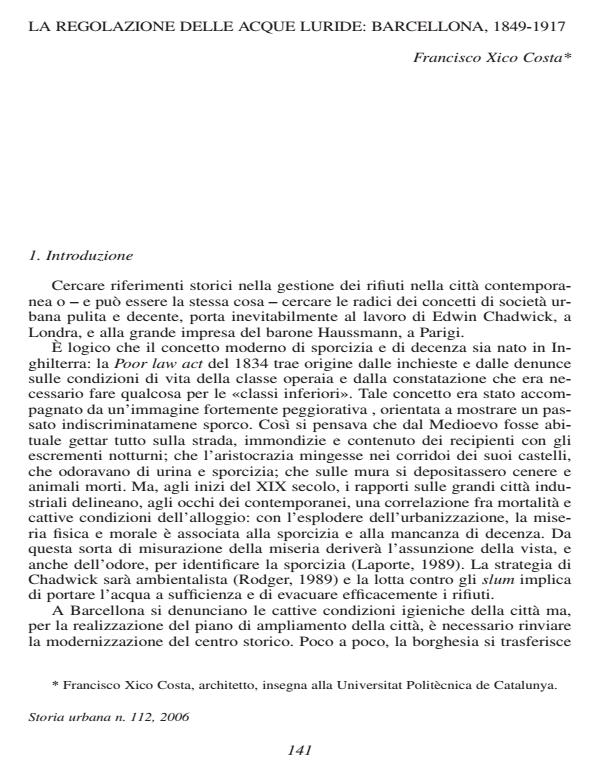La regolazione delle acque luride, Barcellona, 1849-1917
Journal title STORIA URBANA
Author/s Francisco Xico Costa
Publishing Year 2007 Issue 2006/112 Language Italian
Pages 25 P. 141-165 File size 1887 KB
DOI
DOI is like a bar code for intellectual property: to have more infomation
click here
Below, you can see the article first page
If you want to buy this article in PDF format, you can do it, following the instructions to buy download credits

FrancoAngeli is member of Publishers International Linking Association, Inc (PILA), a not-for-profit association which run the CrossRef service enabling links to and from online scholarly content.
This article is based on an historical approach to the management of sanitation in the contemporary city. Flow and network are concepts that characterised modern cities, in terms of relation systems, urban functionalities and space conflicts. Between these flows, there are those unequivocally related with the modernization of the city electricity i. e. but also those garbage collection and sanitation that established conflicts between different types of interests. This kind of conflicts are particularly evident in the case of improvement of sewers, which reshaped the relations between public and private, in terms of spaces, social structures and political approaches. The case study of Barcelona, with its hierarchal but also relative disrupted organization, show how the adoption of a system of tout-à-l’égout, after a long debate throughout the XIX century, represented the beginning of a model for many aspects unsustainable.
Francisco Xico Costa, La regolazione delle acque luride, Barcellona, 1849-1917 in "STORIA URBANA " 112/2006, pp 141-165, DOI: